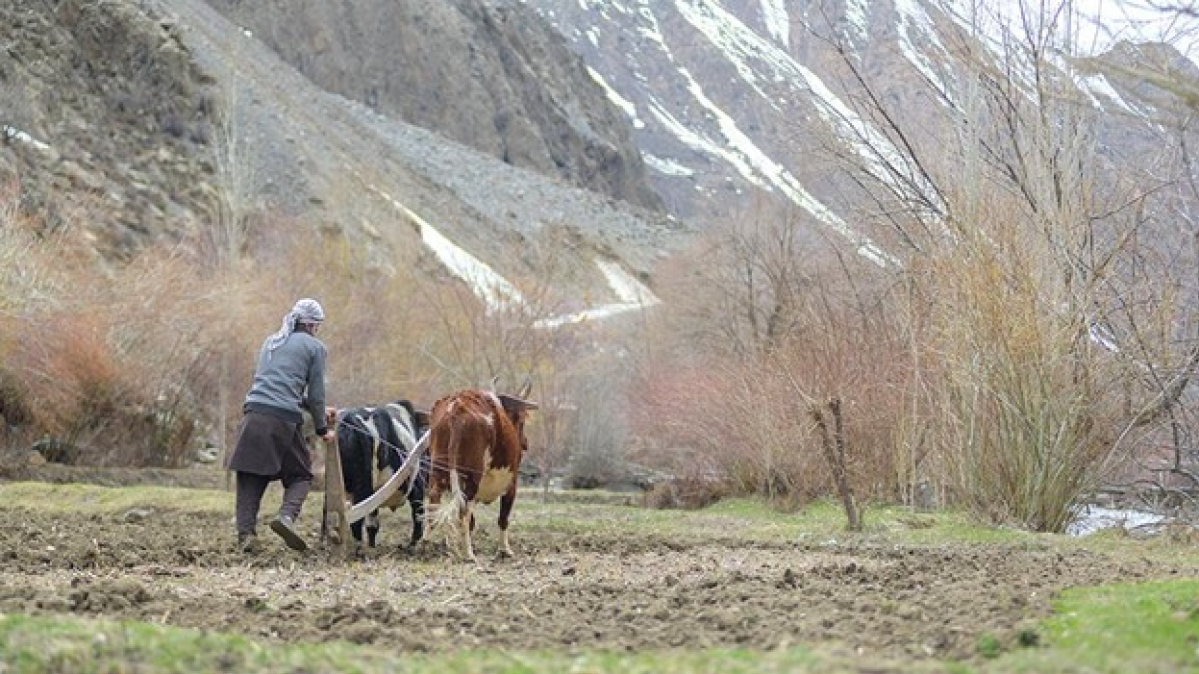Rubio says U.S. does not challenge European assessment of Navalny poisoning
U.S. Secretary of State Marco Rubio on Sunday (15 February) called "troubling" a report by five European allies blaming Russia for killing late Kremli...

Central Asia, the South Caucasus and Pakistan have received a significant boost in their fight against the impacts of climate change with the approval of a $250 million grant.
The financing is made available by the Green Climate Fund (GCF) for the Asian Development Bank (ADB) programme “From Glaciers to Farms.”
The initiative aims to develop resilient water supply and agricultural systems, while modernising infrastructure to cope with the accelerated melting of glaciers.
In addition to GCF grants, the ADB is contributing $3.25 billion from its own resources to fund the construction of reservoirs, the modernisation of irrigation systems, and improved management of water resources.
The programme will cover nine countries, including Uzbekistan, focusing on the basins of the Naryn, Panj, Kura and Swat rivers. It is expected to benefit approximately 13 million people, ensuring both water security and sustainable agricultural development.
Glacier melt was a key topic during the 29th session of the Conference of the Parties to the UN Framework Convention on Climate Change (COP29), in a joint session entitled “Preventing Glacier Melt in Central and Western Asia.”
In Tajikistan, home to over 14,000 glaciers, more than a thousand have already disappeared, with the rate of melting accelerating.
This threatens both drinking water supplies and agriculture, prompting the Tajik government to propose an International Year of Glacier Preservation, highlighting the urgent need for coordinated international action.
The environmental challenges in the region extend beyond glaciers. The Aral Sea, which has shrunk by 90%, has left millions of hectares of salt flats, creating toxic dust storms carried by winds over thousands of kilometres.
In response, Kazakhstan is launching an innovative project to restore the Aral Sea ecosystem. The Ministry of Science and Higher Education reports that drone-based aerial seeding will be used to plant self-burial seeds in biodegradable material.
A pilot sowing of one hectare is scheduled for spring 2026. If successful, with a survival rate above 20%, the project will expand to 50 hectares in 2027.
The E-seed method is expected to stabilise soil structure, reduce dust and salt emissions, and enhance regional biodiversity. By 2040, the programme aims to rehabilitate at least 50 square kilometres, lower air temperatures by 1–2 degrees Celsius, and improve the local microclimate.
Thus, the region faces two major environmental challenges simultaneously: accelerated glacier melt and the degradation of the Aral Sea.
International investment and innovative technology provide new opportunities for adaptation and recovery, demonstrating that integrated measures across water management, agriculture, and ecosystem restoration can form the foundation for a sustainable future.
U.S. Ambassador to NATO Matthew Whitaker said China has the power to bring an end to Russia’s war in Ukraine, arguing that Beijing is enabling Moscow’s military campaign.
American figure skating star Ilia Malinin endured a dramatic collapse in the men’s free skate on Friday night, falling twice and tumbling out of medal contention at the Milan Cortina Winter Olympics as Kazakhstan’s Mikhail Shaidorov surged to a surprise gold medal.
“Respected and feared globally,” U.S. President Donald Trump told troops at Fort Bragg on Friday (13 February), framing America’s renewed strength against to mounting pressure on Iran amid stalled nuclear talks.
Dubai-based global ports operator DP World said on Friday that its long-serving chairman and chief executive, Sultan Ahmed Bin Sulayem, has stepped down following mounting pressure linked to alleged ties to disgraced financier Jeffrey Epstein.
Speaking at Munich Security Conference, Ukrainian foreign minister Andrii Sybiha calls for decisive steps ahead of expected Geneva talks
Azerbaijani President Ilham Aliyev paid an official visit to Belgrade on Sunday (15 February), which coincides with Serbia’s Statehood Day, lending the visit additional symbolic significance.
At least eleven Palestinians were killed in Israeli airstrikes in the northern and southern Gaza Strip on Sunday (15 February), Palestinian civil defence and health officials said, in what Israel's military called a response to Hamas ceasefire violations.
Israel’s National Guard is preparing to deploy drones capable of firing tear gas at Palestinians in the occupied West Bank, including East Jerusalem, as part of security preparations ahead of the Muslim holy month of Ramadan, Israeli Channel 12 reported on Saturday.
President Ilham Aliyev met with Jared Cohen, President of Global Affairs at The Goldman Sachs Group, Inc., in Munich on 14 February to discuss ongoing cooperation and future partnership opportunities. The meeting took place on the sidelines of the Munich Security Conference 2026.
President of the Republic of Azerbaijan Ilham Aliyev met with Ukrainian President Volodymyr Zelenskyy in Munich on Friday to discuss expanding cooperation between the two countries, officials said. Leaders hold talks on energy, humanitarian aid and bilateral ties.
You can download the AnewZ application from Play Store and the App Store.

What is your opinion on this topic?
Leave the first comment